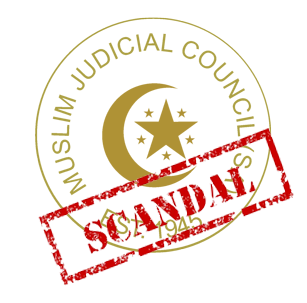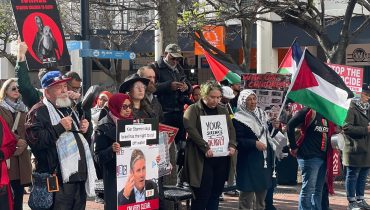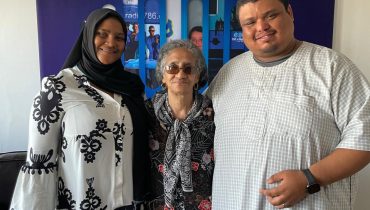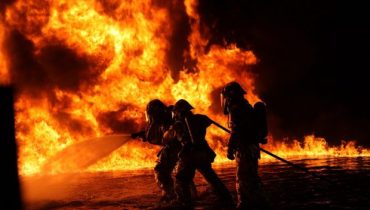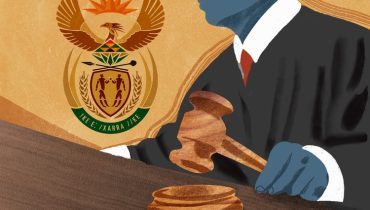Imraahn Mukaddam writes
The Clergy has a role in our lives, they should be our moral compass, our guides who assist us in navigating the complex realities of modern life. They are present at our births, marriages and our ultimate demise, and yes they teach us our religion, our moral and ethical values are informed by their teachings, but also by their example. Why is it, that more often than not, they do not practice what they preach?
Every aspect of our lives as Muslims in South Africa has been Captured by certain organised clergy syndicates, be it Hajj, Halal, Islamic Finance and even the Islamic Media.
Our captured minds and captured souls are being enslaved to a religious elite who hypnotically pacify our urge to resist all forms of injustices, oppression and corruption. The weapon they exploit to the ultimate is “The Mimbar of Rasulallah”, where fear, hate and self-preservation is preached, entrenching the dogma of us Muslims against the world, us Muslims against all who dare to think critically and independently for themselves.
We often witness the imposition of dogmatic points of view that further undermine our lived reality in the 21st century, Sincere individuals and organisations are attacked and villified from pulpits by conservative prayer leaders who are out of touch with daily lived realities in an ever changing world.
Controversies serve as convenient distractions as well as continuous lubricants for the propoganda machine that seeks to draw our Muslim community deeper into the laager and antiquated mindsets that are easily radicalised to see progress as innovation and seeks to impose 7th century solutions to 21st century challenges.
With many Islamic Institutions under the yoke of the same regressive forces, our communities especially our youth are being indoctrinated and expected to become mental slaves to a hierarchy of Scholars for Dollars who have privatised Islam to further the agendas of the Saudi/Zionist/Imperialist/Capitalist conflagration.
Nowhere have the Clergy alone been given the mandate to be the sole custodians of this community, to speak on our behalf on matters affecting our personal, legal and communal rights as Muslims. Yes they could have a role in this space but they have to be truly accountable to the Muslim community and truly representative of our best interests.
What we have in South Africa is a Clergy Class clinging onto their hegemonic and lucrative monopolies as seen in the growing multi-million rand Halal oligopoly and millions of surplus cash in SAHUC’s coffers. Who would have thought that Ulema would become oligarchs.
Where is the contract that authorises the Organised Clergy to use our Islamic symbols and religion as trademarks to sell “Brand Islam” to the highest bidder and franchise out Halal labelling as a source of Religious Tax Revenue for the benefit of the Religious Elite.
Muslims, as part of the global community and in cosmopolitan societies such as ours, must advocate primarily for social justice, equality and our common humanity.
By being at the forefront in the service of humanity as some of our NGO’s has been, the perception of Islam as an elite enclave is changing. Our treatment of our continental brothers and sisters from Malawi, Somalia and even ethnic South Africans at times leaves a lot to be desired. We should appreciate their role and how they contribute to changing the perception of Islam in the townships.
As a Muslim community our dynamics and our demographics are evolving. Indigenous Muslim communities are growing and they are contesting the dominant Indo/Malay narrative. Just as our Malay and Indian ancestors pioneered Islam on these shores, it is now our Somali, Bangladeshi and Malawi brothers and sisters who are becoming the pioneers of Islam in the townships and rural areas, increasing the Muslim presence in many communities.
We are witnessing these changes, but not adapting to these realities as an Ummah. We need urgent transformation and we should encourage indigenous Muslims to engage as the new emerging and dynamic leadership within our Clergy formations. We should ask ourselves are we ready for a BLACK President of the MJC or UUCSA or even the Jamiats.
We need dynamic leadership who could restore to these organisations some form of credibility and relevance. We have seen how the entrenched status quo has led to corruption and a culture of entitlement, but change is inevitable and should be embraced if the Trust relationship between our community and its leadership is to be restored.
The challenges of the 21st Century are complex and novel that require specialised skills and knowledge to understand. We are dealing with the devastating effects of climate change, the collapse of our economies, massive income inequalty, and an insurmountable rise in the levels of poverty and homelessnes. Youth unemployment and despondency drives crime and drug addiction to unprecedented levels. Coupled with these, industrial agriculture, genetic modification and artificial intelligence are posing new ethical and moral dillemas for which many of our current regimes are ill equipped to deal with.
INTELLECTUALLY and strategically astute leadership from within the Muslim community is required to mobilise adequate responses to these challenges. We need to advocate for a new dispensation that recognises the Ummah as a constituency of believers that no longer follows blindly. This constituency expects to be consulted on the bases of Shurah (Mutual Consensus). This constituency understands principles such as transparency, accountability and ethical best practice. This constituency demands conduct that is comensurate with the values of Islamic Social Justice and Shariah based ethics.
In conclusion we have to start a process of imagining Islam 2050 and beyond. How do we influence the social construct of Southern African society? How do we contribute with Shariah based, Quranic solutions to the complex challenges we will face in the mid 21st Century? How do we remain not only relevant and cohesive as a distinct community, whilst at the same time taking the lead in building a society premised on Universally agreed principles of Social Justice.


